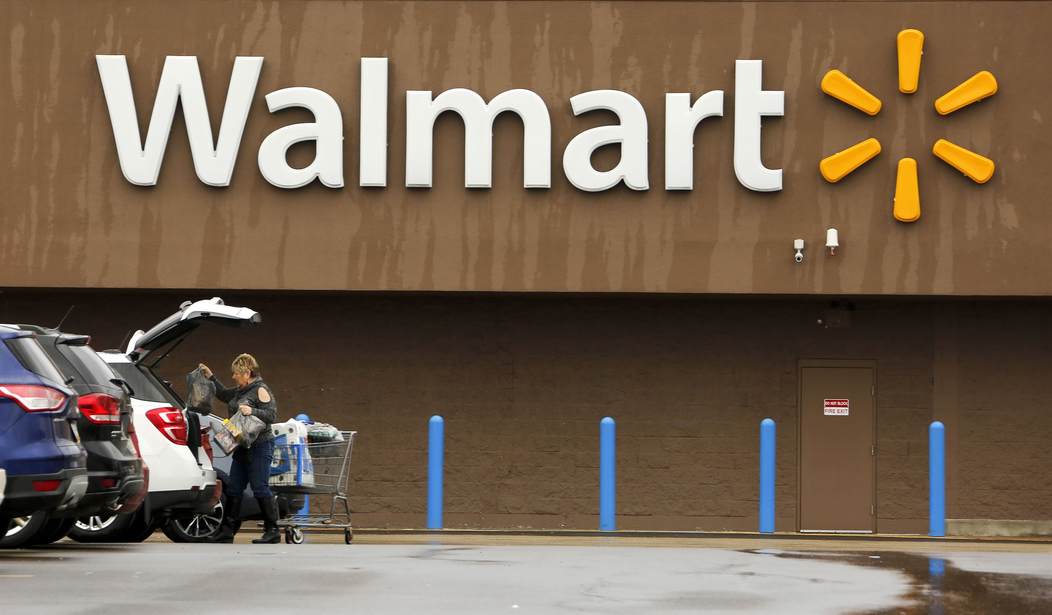In a legal matter not unlike a schoolyard bully punching another kid, then complaining he bruised his knuckles on the kid’s face, Walmart has followed CVS and Walgreens’ lead by settling a lawsuit from multiple states and municipalities over issuing too many opioid prescriptions. The company will pay $3.1 billion, thus getting off lighter than CVS and Walgreens, who are each shelling out around $5 billion to settle the claims without any admittance of wrongdoing.
The matter is separate from a 2020 lawsuit filed by the Justice Department during the Trump administration, alleging Walmart bypassed standard operational procedures to fill as many opioid prescriptions as possible regardless of their legitimacy. As the Wall Street Journal reported at the time:
The Justice Department’s lawsuit alleges Walmart created a system that turned its network of 5,000 in-store U.S. pharmacies into a leading supplier of highly addictive painkillers. The allegations date to June 2013, according to the suit.
Walmart started with cut-rate prices on opioids that initially drove shoppers to its stores, the government alleges. Middle managers—under direction from executives at company headquarters—pressured their pharmacists to work faster, the suit says, believing that quick-fill prescriptions drew customers to stay and keep shopping.
Walmart attempted a preemptive countersuit, but it was eventually dismissed.
The question is what responsibility private companies have in such matters. Indeed, any business that suspects individuals or organizations are attempting to use its goods and services for illegal purposes must have intelligent safeguards to automatically flag such activity for proper response. But when government organizations, whose demonstrated feckless unwillingness to effectively combat drug abuse (or mental illness or deliberate homelessness, etc.) among its populace while siphoning ever-increasing taxes from the middle class to spend on nothing discernible, are demanding businesses pay extraordinary fees so they can waste even more money on lining pockets in lieu of cleaning streets, there’s a problem.
Yes, opioid abuse is a severe problem. That said, even the CDC notes that while the number of deaths due to prescribed opioids has risen over the years, illicit opioid-caused deaths far outstrip their licit counterpart. Note that these numbers end in 2020; the pandemic-induced enforced social isolation has made matters even worse:
The number of drug overdose deaths increased by nearly 30% from 2019 to 2020 and has quintupled since 1999. Nearly 75% of the 91,799 drug overdose deaths in 2020 involved an opioid. From 2019 to 2020, there were significant changes in opioid-involved death rates:
- Opioid-involved death rates increased by 38%.
- Prescription opioid-involved death rates increased by 17%.
- Heroin-involved death rates decreased by 7%.
- Synthetic opioid-involved death rates (excluding methadone) increased by 56%.
Obviously, this is all your local pharmacy’s fault. (/sarcasm off)
I’ve lost loved ones to drugs or alcohol, which despite its socially acceptable status is ruinous to lethal levels when abused. I would love nothing more than to see every drug dealer drawn and quartered in the middle of town. I would equally love to see addicts given two choices only: genuine help to get and stay clean, or a lovely unaided drug withdrawal session in the neighborhood isolation chamber. If pharmacies rammed through spurious prescriptions for profit’s sake, they should pay through the nose. However, handing over billions to government entities with no demonstrated effectiveness in combating drug abuse is nothing more than taking the profits from one set of addicts and handing them over to another.















Join the conversation as a VIP Member